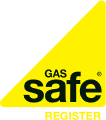68,000 homes escape from deadly gas incidents in the last year
To mark the start of Gas Safety Week, new research released today has revealed at least 68,000 homes have escaped deadly gas incidents, such as explosions, fires and carbon monoxide (CO) poisoning, in the last year.
The research carried out among Gas Safe registered engineers revealed that over half of engineers (57 per cent) found a dangerous gas boiler, cooker or fire in a customer’s home in the last year that needed turning off immediately. Around half (45 per cent) of these dangerous appliances were attributed to the fact that people had failed to get their gas appliance regularly serviced and had been left in a poor state.
Gas Safe Register’s own inspections of over 120,000 homes in the past four years, found unsafe gas appliances lurking in one in six homes – the equivalent of 4.28 million households. In addition, the UK Gas Distribution Networks (National Grid plc, Northern Gas Networks, Scotia Gas Networks and Wales & West Utilities) found over 70,000 unsafe gas appliances at emergency callouts attended in just the last year.
Gas Safe Register’s data has identified which areas are most at risk across the country. Birmingham is the most unsafe, with a third (32%) of all homes found to have an unsafe gas appliance. Other dangerous cities include:
- Edinburgh (31%)
- Cardiff (29%)
- Manchester (29%)
- Norwich (29%)
- Ipswich (28%)
- Coventry (27%)
- Milton Keynes (25%)
- Glasgow (24%)
- Aberdeen (22%)
More than 120,000 registered engineers all over the country are tirelessly working to keep the public safe and reduce the number of unsafe homes – many of which are caused by people failing to get their gas appliances safety checked annually by registered engineers.
Christopher Darby, a Gas Safe registered engineer based in Bridgwater, Somerset said:
“It’s scary to see every day how many people are in danger and don’t even realise it. Just earlier this year, one of my customers had started complaining of headaches and dizziness, and had to call out an ambulance as she collapsed. It turns out carbon monoxide was leaking into her property from a gas wall heater that hadn’t been regularly serviced. It was just a matter of luck that I checked the appliance before she was exposed to anymore deadly fumes. It could have been fatal.”
Gas Safe Register, registered gas engineers and local Fire and Rescue Services will be touring the country this week, visiting some of the UK’s gas danger hot spots – Sunderland, Sheffield, Manchester, Birmingham, Nottingham, Norwich, Bristol and Portsmouth – to remind people of the importance of getting regular safety checks on all gas appliances.
Russell Kramer, chief executive for Gas Safe Register, said: “Over the past three years there’s been 31 deaths and over 1,000 injuries that have resulted from gas related incidents. However, listening to our engineers tell us about the situations they face on a daily basis and hearing just how many life-threatening incidents they prevent, it’s surprising there haven’t been more. It shows what a great job registered engineer’s do, but at the same time the public also has an important role in gas safety. An engineer can only help keep you safe if they are invited into your home to check your gas appliances. It’s therefore your responsibility to make sure you stay safe by regularly getting your appliances safety checked by a registered engineer.”
Last year, Gas Safe Register launched the first ever interactive gas map at StayGasSafe.co.uk which tells people how safe or unsafe their area is when it comes to gas by simply entering their post code. People can also sign up to a free gas safety check reminder service which will alert them when their gas appliances need checking.
Russell continued:
“We want to make it easy for people to stay gas safe. Over 150,0007 people used the gas map in the last year, and many signed up to the reminder service. We hope to see thousands more use these tools during and beyond Gas Safety Week this year to reduce the number of dangerous gas appliances that are lurking in homes and live in a safer Britain.”
Follow Gas Safe Register’s advice this Gas Safety Week:
- Get your gas appliances safety checked every year by a Gas Safe registered engineer.
- You can sign up to a reminder service and find out about the gas dangers in your area by visiting StayGasSafe.co.uk
- Check the front and back of your engineer’s Gas Safe Register ID card, making sure they are qualified to do the specific type of gas work you require.
- Check gas appliances for warning signs that they are not working correctly. A lazy yellow flame, black marks or stains around the appliance, or too much condensation in the room are all signs that your appliances aren’t safe.
- Know the six main symptoms of carbon monoxide poisoning: headaches, dizziness, nausea, breathlessness, collapse and loss of consciousness.

